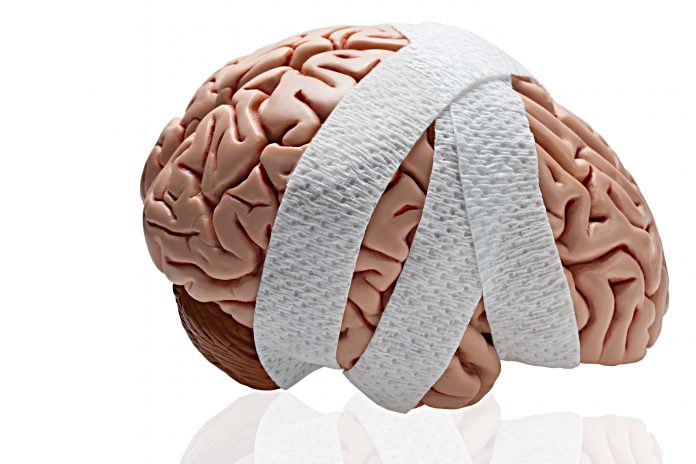
Traumatic Brain Injury (TBI) symptoms can be a debilitating injury for patients. A surprising new study from the University of Maryland shows that shutting down the immune system shortly after the initial injury can dramatically lessen future TBI symptoms.
The preclinical study suggests that prolonged brain inflammation following injury can be reversed by temporarily depleting, or resetting, immune cells. Brain inflammation is a common occurrence after a traumatic injury, though there is usually a time delay, allowing doctors a chance to intervene.
Both human and animal brains have specialized immune cells, called microglia, which under normal conditions protect the neurons from any bacteria or viruses that might try to enter the brain.
Evidence from previous clinical studies have shown an increase in microglia activation in patients who have suffered a moderate or severe TBI. These changes appear to be correlated with neurological deficits in such patients, including cognitive function.
In the study conducted on mice, researchers at the University of Maryland School of Medicine (UMSOM) found that targeting overactive immune cells — namely, microglia — in the brain with an experimental drug could limit brain cell loss and reverse cognitive and motor difficulties arising from brain trauma. The findings, published in the Journal of Neuroscience, suggest this drug may become a potential new treatment for TBI, and potentially a multitude of other types of brain injuries.
The UMSOM scientists administered a CSF-1R inhibitor for one week to mice who had undergone a TBI one month prior. This would be during a time at which the animals are experiencing brain inflammation and are displaying neurological deficits, similar to that of their human counterparts. The researchers found that following the treatment course, the drug depleted more than 95% of the brain’s overactive microglia, cells that are known to cause neurotoxic inflammation. Several weeks after the treatment, the microglia cells had regenerated, and the new cells were more similar to normal microglia, exhibiting fewer inflammatory features.
It is interesting to note, the treated mice recovered markedly better compared to the control group that did not receive treatment, and showed less loss of tissue and neurons, along with significantly better motor and cognitive performance improvement. It is possible that reducing the amount of cytokines released or other factors produced from the microglia is actually the cause of neuron toxicity and death. The neurodegeneration and neurological deficits usually seen in TBI improve over time, and it may be possible that it is the microglia response that needs to be cleared out, not the brain injury itself.
“We were surprised to see that the extent to which such late treatment could reverse the inflammatory state and the cognitive effects of experimental TBI,” said study co-author Rebecca Henry, Ph.D., research associate in Anesthesiology at UMSOM. “This was a proof of concept study that depletion and subsequent repopulation of microglia cells after injury has a strong protective effect, but we clearly need more research to better understand this process before clinical translation.”
“These preclinical studies suggest that the consequences of TBI on brain degeneration and related neurological impairment may be modifiable [for] quite long [time] after injury,” said study co-author Alan Faden, M.D., the David S. Brown Professor in Trauma at UMSOM. “We can potentially alter these effects by even highly delayed targeting of inflammatory pathways, a finding at odds with widely accepted views about treating head injury.”
Dr. Faden is referring to the idea that it is important to treat brain injuries as soon as they occur, and is suggesting that by delaying treatment even longer than a month, it might be possible to see even better results.
The next step for the researchers is to isolate the microglia cells from brain tissue and use RNA sequencing techniques to discover which genes are driving inflammation and overactivation, to better understand the mechanism(s) identified in this study. One of the difficulties of studying immune cells is that they are motile, so it is necessary to analyze which proteins are being expressed and what signaling mechanisms are involved to understand what they are doing following an injury. This information will hopefully reveal why and how microglia are causing (or involved with) symptoms of TBI, beyond causing brain inflammation. It may also shed light on how these symptoms can be reversed, even after a time delay to treatment.
“This is an intriguing finding that points to an important role that inflammation plays in chronic debilitation from brain injuries,” said UMSOM Dean E. Albert Reece, M.D., Ph.D., M.B.A., University Executive Vice President for Medical Affairs and the John Z. and Akiko K. Bowers Distinguished Professor.
“Future studies will hopefully lead to new treatments for severe TBI that destroys a patient’s quality of life.”













